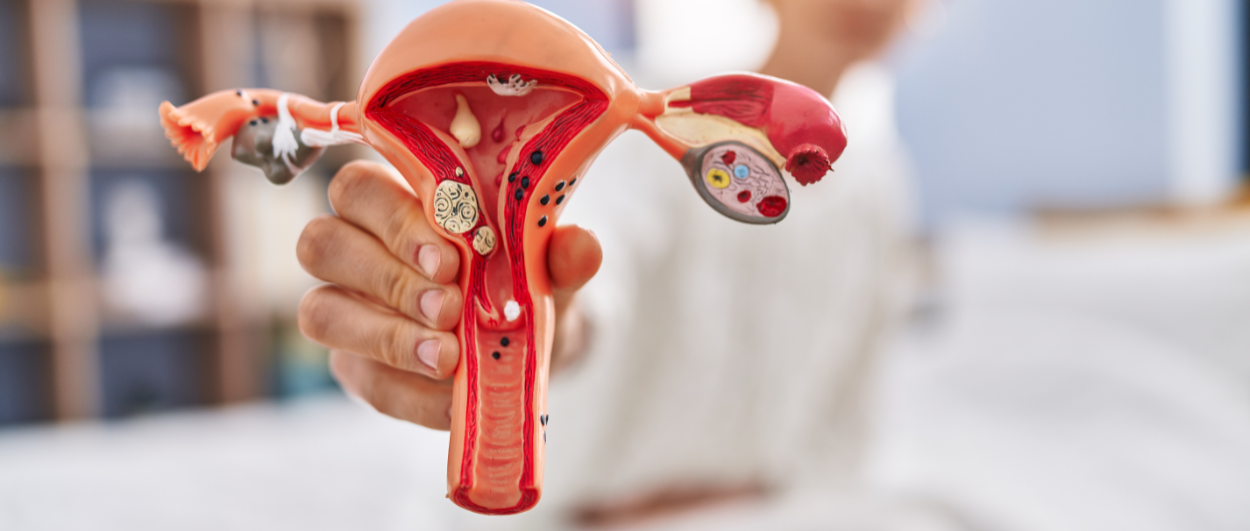For anyone on a fertility journey, lifestyle choices can feel overwhelming. From diet and exercise to supplements and stress management, there’s a lot of advice out there.
One crucial but often overlooked factor is sleep. Getting enough good quality sleep – ideally, uninterrupted sleep – plays a significant role in reproductive health for both men and women.
-
Does lack of sleep affect fertility?
-
Does sleep deprivation affect fertility in men and women?
In this blog, we’ll explore how sleep and fertility are linked, the specific benefits of sleep for male and female reproductive health, and some practical steps you can take to improve your sleep hygiene when you are trying to conceive.
Good Quality Sleep and Fertility: Why It Matters
Sleep is more than 'just' rest. It is a vital biological function that regulates hormones, restores energy, and supports overall health.
For couples trying to conceive, these benefits directly impact reproductive systems when TTC::
-
Hormonal balance: Sleep regulates hormones such as cortisol, melatonin, and growth hormone. Disruption in these cycles can affect ovulation in women and testosterone levels in men.
-
Stress management: Poor sleep raises stress hormones, which can interfere with reproductive function.
-
Immune system support: A well-rested body (and mind) is more resilient, supporting a healthy environment for conception and pregnancy.
In short, good quality sleep is not a luxury – it’s an important foundation for fertility.
Sleep Requirements for Reproductive Health
Most adults need 7–9 hours of uninterrupted sleep per night.
Consistency matters just as much as duration: going to bed and waking up at similar times every day helps regulate your body’s circadian rhythm.
When you are trying to conceive, both partners should prioritise:
-
Quantity: Aim for at least 7 hours of sleep nightly.
-
Quality: Focus on deep, restorative sleep cycles without frequent waking.
-
Routine: Create a steady sleep schedule to support hormonal balance.
The Impact of Sleep on Women’s Fertility
Sleep is key for fertility in women because it balances hormones, keeps cycles regular and supports healthy eggs!
Having less than 7 hours of sleep a night can lower your chances of conceiving. Dr Irfana Koita advises women that if they sleep fewer than 7 hours a night, they are about 15% LESS likely to get pregnant, compared to those with consistent, adequate sleep.
Hormonal Regulation
For women, sleep plays a key role in regulating the menstrual cycle. Poor or irregular sleep can disrupt the release of luteinising hormone (LH), which triggers ovulation. Women who work night shifts or have irregular sleep schedules may experience more menstrual irregularities.
Egg Quality and Ovarian Reserve
Research suggests that chronic sleep deprivation may impair ovarian function and reduce egg quality, lowering the chances of conception.
Stress and IVF Outcomes
For women undergoing IVF or assisted reproductive treatments, poor sleep has been associated with increased stress and lower success rates. Good sleep, on the other hand, helps the body respond more positively to treatment.
Early Pregnancy
Sleep in the preconception phase may also influence early pregnancy outcomes. Adequate rest improves the uterine environment and helps prepare the body for implantation.
The Impact of Sleep on Men’s Fertility
Sleep is just as VITAL for men when trying to conceive as it boosts testosterone, supports healthy sperm production, protects sperm DNA from damage, and maintains libido all of which directly affect fertility.
Dr Koita advises that if you get less than 6 hours of sleep a night, you are 31% LESS likely to conceive within a year compared to men who sleep 7-8 hours and that’s a mighty statistic!
Testosterone Production
Men produce most of their daily testosterone during sleep. This hormone is essential for sperm production. Interrupted or short sleep can significantly reduce testosterone levels.
Sperm Quality
Studies have linked poor sleep with reduced sperm count, lower motility (movement), and abnormal morphology (shape). Good quality sleep supports healthy sperm development, which is vital for conception.
Weight and Metabolic Health
Sleep deprivation can contribute to weight gain and insulin resistance in men. Obesity and metabolic syndrome are known risk factors for reduced fertility.
Shared Benefits of Sleep for Couples Trying to Conceive
-
Emotional wellbeing: Fertility journeys can be stressful. Couples who sleep well are better equipped to cope emotionally.
-
Libido: Poor sleep lowers sex drive in both men and women. Better rest often means improved intimacy, which naturally increases opportunities for conception.
-
Immune health: Both partners benefit from a stronger immune system, lowering the risk of infections that could affect fertility.
Practical Tips for Good Sleep Hygiene for Fertility
Improving your sleep doesn’t have to be complicated. Here are evidence-based strategies to help you achieve better rest:
Relaxation Habits Before Bed
Implementing restorative practices for relaxation can help sleep and fertility by lowering stress and cortisol levels
-
Establish a wind-down routine: Spend 30–60 minutes before bed doing calming activities such as reading, stretching, or listening to soft music.
-
Mindfulness or meditation: Guided breathing exercises can help reduce stress and quiet the mind.
-
Warm bath or shower: A rise and fall in body temperature encourages sleepiness.
-
Limit screens: Blue light from phones, laptops, and TVs interferes with melatonin production. Aim to switch off at least an hour before bed as you’re aiming to reduce any external stimulation.
Good Sleep Hygiene Practices
-
Stick to a consistent sleep schedule: Go to bed and wake up at the same time every day, including weekends.
-
Create a sleep-friendly bedroom: Keep your room cool, dark, and quiet. Consider blackout curtains and earplugs if needed.
-
Invest in a comfortable mattress and pillows: Physical comfort is essential for uninterrupted sleep.
-
Limit caffeine and alcohol: Both can interfere with sleep cycles. Avoid caffeine after 2pm and keep alcohol to a minimum.
-
Exercise regularly: Physical activity improves sleep quality, but avoid intense workouts close to bedtime. We recommend any HIIT, heavy weights, or intense cardio workouts be finished 2-3 hours before your scheduled bedtime, as this allows your heart rate, body temperature, and stress hormones to normalise.
-
Avoid heavy meals late at night: Digesting large amounts of food can make it harder to fall asleep.
-
Manage stress during the day: Journaling, yoga, or talking with a friend can reduce night-time overthinking.
Special Considerations for Shift Workers
If your job involves night shifts or irregular hours, maintaining good quality sleep is more challenging but still possible:
-
Use blackout blinds to simulate darkness during the day.
-
Wear a sleep mask to block out light.
-
Try to stick to a regular schedule, even on days off.
When to Seek Help
If you consistently struggle with sleep despite following good sleep hygiene, consider seeking professional advice. Sleep disorders such as insomnia, sleep apnoea, or restless leg syndrome may require medical attention. Addressing these issues is not just about feeling rested – it can directly improve your fertility and overall health.
Final Thoughts
Sleep and fertility are deeply connected. For both men and women, good quality, uninterrupted sleep supports the hormones, energy levels, and emotional resilience needed when trying to conceive. Prioritising rest is not indulgent – it’s a vital step in preparing your body for pregnancy and supporting your partner through the journey.
By building healthy sleep habits, couples can improve not only their chances of conception but also their overall well-being. So if you’re on a fertility journey, remember: don’t just focus on diet and lifestyle changes – make sleep your superpower.
Need Fertility Advice?
Why not schedule a FREE 20 minute Advisory Call with a member of our team to discuss any concerns?
Alternatively, if you are ready to start your fertility journey, you can arrange a consultation with our Fertility Specialist, Dr Irfana Koita, directly at our London IVF clinic, or via video call.







